Polish immigrant on terminal cancer diagnosis: ‘This is one of the best years of my life’
To begin to understand Max Savar the Cancer Survivor, it’s helpful to first understand a little bit about Max Savar the Polish Immigrant.
A man who, in 1995, at age 20, came from Warsaw to the U.S. — knowing virtually zero English, knowing virtually no one except a father with whom he had only a slight relationship — and took a job cleaning offices in a Chicago high-rise during the overnight shift. Who saw photos of families on the desks of the offices he cleaned and thought how lucky they were to have that desk. Who put the precious few extra dollars he earned in that job toward buying cassette tapes packed with English lessons that he would drive to, brush his teeth to, drift off to sleep to.
“I tell you, I was so obsessed,” recalls Max, now more than twice as old at 48, in his Polish-accented English. “I always try to justify myself, like, It’s a healthy obsession. But obsession nevertheless. ... I told myself I would give up music for as long as it takes. (I told myself), The only thing I’ll listen to is English lessons. ...
“All of this was a fun challenge for me. Literally. OK, bring it. I’ll show you.”
And that personality is a core part, too, of his makeup. In other words, if you want to even more fully understand Max Savar the Cancer Survivor, it’s also helpful to understand a little bit about Max Savar the Obsessive.
A man who laughs as he leads his white Goldendoodle through a trick for a treat inspired by an iconic line of dialogue from “Friends,” one of the many sitcoms he’s been known to obsess about. Who beams as he talks about a job he’s as obsessed with as he was about learning English — the one he’s held for the past six years at the YMCA of Greater Charlotte, as associate executive director at the Harris and Harris Express branches. Who chatters excitedly about his latest obsession — the sport of triathlon — and the challenge of 70.3-mile races.
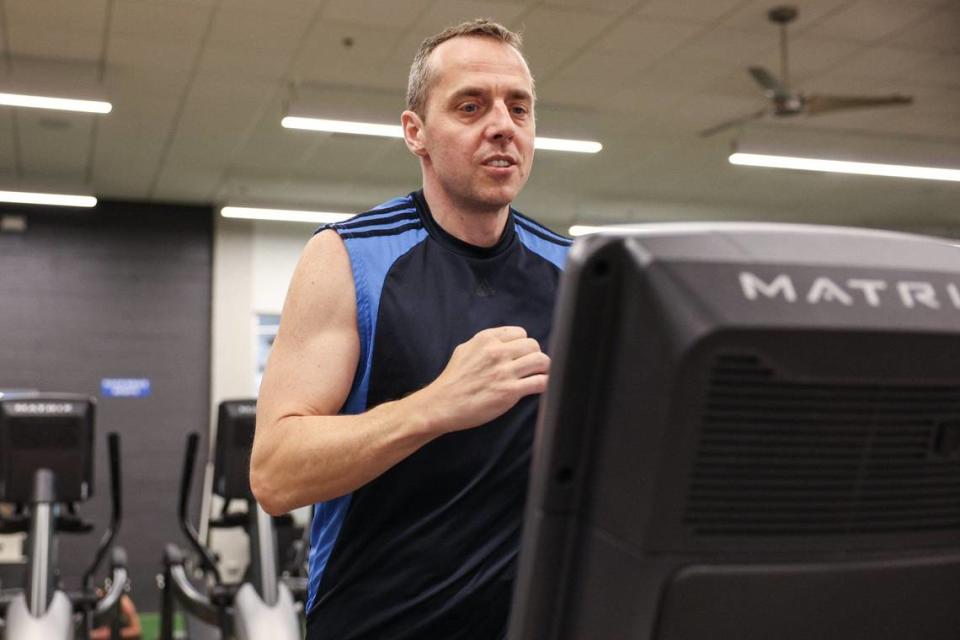
They’re obsessions he could never have imagined having back when he was a boy growing up in under the former communist regime in Poland. He’s in what he then regarded as a “land of milk and honey.”
He is living the American dream, along with his wife of 20 years Mariana and their children Olivia (18) and Ben (12).
At the same time, Max is also living what almost anyone would consider to be a complete nightmare: In January of last year, Max was blindsided by the news that he had metastatic colon cancer, and told there was a very strong chance he would not survive it.
But what did Max do after learning of his potentially terrible fate? Naturally, almost predictably, he became obsessed — in this case with trying to figure out how to prolong his life.
Tackling challenge after challenge
Max’s earliest memories of being involved with sports or exercise are by almost every standard unique.
He remembers loving basketball as a kid in Warsaw, where “the opportunities to play were so limited. We were literally playing with a half-flat ball in the snow with holes in my shoes. … But yeah, I was always conscious of physical activity and driven towards it.”
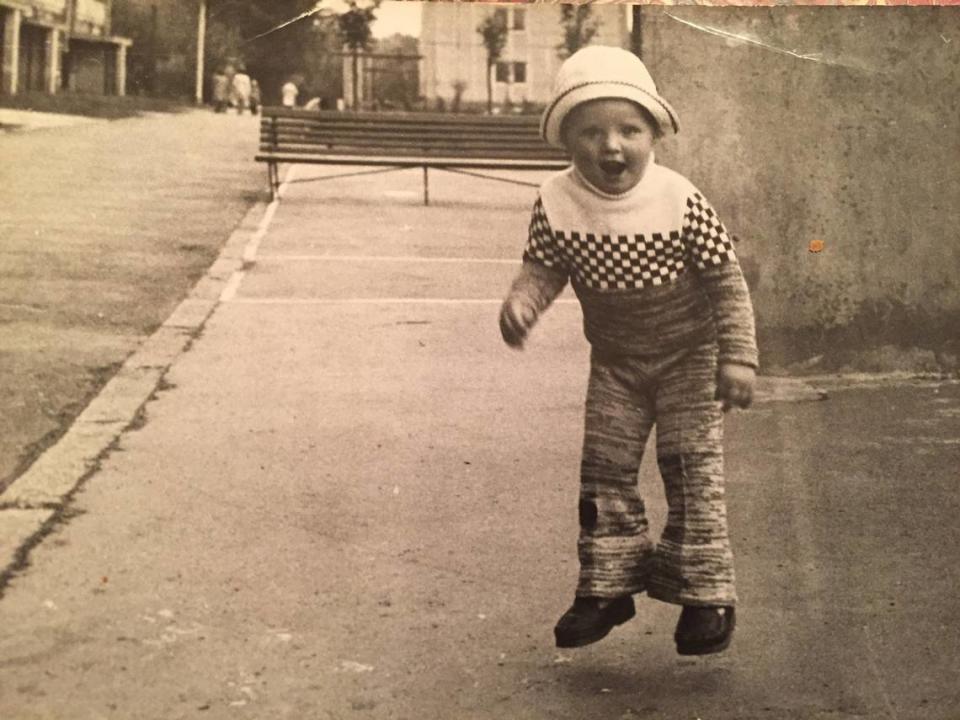
That consciousness and drive never left him. After spending two years settling into his new life in the U.S. and becoming comfortably able to communicate in English, he graduated from rigorous blue-collar work and landed a long-term, low-stress job as a personal assistant/caregiver for an 85-year-old (but healthy) man, affording him the time and money to start a new obsession: studying to become certified as a personal trainer.
He made relatively quick work of that, too. Within three years, he had his own personal-training business and also would become a group-exercise instructor who taught at multiple fitness facilities — one of which was a branch of the YMCA of Metro Chicago.
From there, his pursuit of success in America was fixed on a straight and narrow track.
By 2007, he was the YMCA of Metro Chicago’s health and wellness director, in charge of personal training for all 23 of its locations. He got promoted again in 2012 (the same year he completed a bachelor’s degree in business from the University of Phoenix), to director of program operations; then opted for a change of scenery when he took a job as vice president of member engagement for the YMCA of Greater Kansas City in 2014 (the same year he got his master’s in organizational leadership from Gonzaga University).
Meanwhile, “the fun challenge” of learning English having long since been overcome, he’d sought new ones — and had found them in 2010 in the form of obstacle-course races. For more than a decade, he participated in Spartan Races, Tough Mudders, and the like.
Why? He explains: “I just always needed that desire to compete or desire to challenge myself maybe. … Desire to enjoy suffering. ... See how far you can go outside of that threshold, comfort zone. ... Create your own suffering so to speak, so you can condition your body and mind to handle it. I’ve always been looking for that. My entire life, as far as I can remember, I’ve been almost searching for it.”
As a result, when he first heard the words “you have cancer” in February 2022 — four years after they moved to Charlotte (for both the milder climate and the proximity to his wife’s late mother, who then lived in Raleigh) — he says he practically welcomed the challenge.
“All those interesting stages I went through,” Max says, “almost conditioned me to be in this extreme of extremes, challenges.”
His attitude, once again, was Bring It. And within the year, cancer would do exactly that.
‘Determined to show how easy it is’
2021 was perhaps Max’s busiest year ever as an athlete.
In search of a change of pace, he’d discovered triathlon, and did an international-distance race in Pinehurst that April followed by a “half” (consisting of a 1.2-mile swim, a 56-mile bike ride and a 13.1-mile run) at White Lake in May. That July, he ran both a half marathon and a 10-kilometer Spartan Race. In October, he did a 10K Spartan and a 5K Spartan on back-to-back days one weekend in Asheville, before “retiring” from obstacle-course races to focus on triathlons.
But the following year would become Max’s busiest to that point in terms of visits to the hospital.
It all started in February, when he became concerned about heartburn he was experiencing after drinking coffee. He mentioned it to a doctor-friend, who suggested he schedule an endoscopy. When he did, it was also suggested he get a colonoscopy, since being 46 years old put him within the new recommended guidelines for a screening.
The screening revealed a polyp that indicated early-stage colon cancer — and so it began.
Max, with a smile: No big deal.
The polyp was removed via minimally invasive surgery that month; but three months later, scans showed the cancer had returned and was now at Stage 2, flirting with Stage 3.
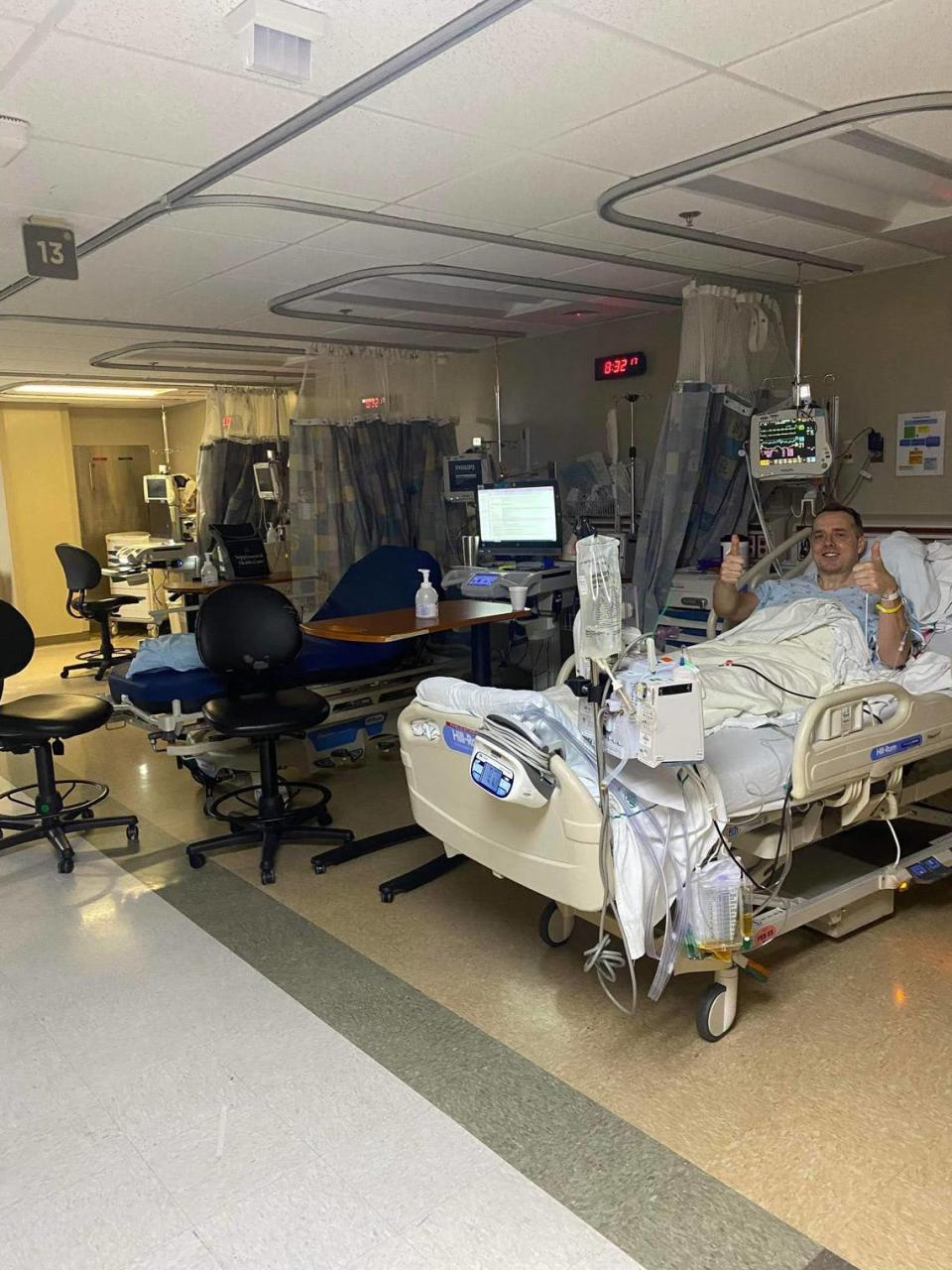
Max, with a smile: Piece of cake. I’ve got this.
A large part of his colon was removed, via a more complicated surgery. The next day he walked 5-1/2 miles through the halls of Atrium Health’s Levine Cancer Center while wearing an ileostomy bag. In July, his intestines were reattached via a third surgery. He was back at work five days later. Within five weeks, he’d hatched a plan to do a second “half”-distance triathlon, in December in Florida.
“I was determined to show,” he says, “that this is how easy it is.”
In December, however, fresh scans revealed a liver lesion that suggested metastasis. Doctors would need to do an ablation on the organ and a biopsy on the lesion.
His wife Mariana recalls Max saying to his surgeon that day, “‘I get it. I’ll do whatever you tell me to do. My only question right now is that tomorrow I’m going to Florida because I am doing (a half) Ironman this weekend. I just want to know, can I do it or not?’ And the surgeon paused. It seemed like an eternal silence. Then he said to Max, ‘Sure. You might as well do whatever you can.’”
That weekend, Max finished the race — smiling, of course. Then he returned home to face the toughest challenge of his life.
Striving to be his healthiest self ever
The prognosis laid out for Max in January of last year was grave. His colon cancer had indeed metastasized. He had, he was told, maybe three years. He’d gotten so used to overcoming challenges. To winning. Now he was hearing that he needed to get ready to lose, and lose big.
For once, he couldn’t muster up a smile.
But even though the relentlessly positive side of Max had been debilitated — even though he was overwhelmed with worry about his family’s future, about exactly how much more of his kids’ lives he would see, about the medical bills they’d be faced with in the coming months — the obsessively driven side of Max once again quickly kicked into overdrive.
It’s just like when he tackled learning English.
Since he couldn’t sleep anyway after receiving news like that, he stayed up diving down into rabbit holes online about his type of cancer diagnosis and practices and treatments involving conventional medicine and alternative medicine and therapies. He joined online support groups but quickly jettisoned most of them, not wanting to be exposed to so many cancer patients voicing so much negativity. He spent hours a day reading the most respected books he could find about cancer, about integrative medicine, about diet and nutrition.
By the time he started aggressive chemotherapy in March of last year, Max had added a wide range of vitamins and supplements to his diet — plus an astonishing amount of garlic, he says — while cutting out everything he had previously been exposing his body to that he’d discovered through his research had toxins. He’s reduced his plastics consumption to virtually zero, for instance, and has dramatically limited his exposure to forever chemicals, having switched to organic or non-toxic brands of toilet paper, deodorant, shampoo, toothpaste, mouthwash, dishwashing detergent, and on and on and on.
His oncologist was and remains supportive, by the way. “It speaks to his perseverance, to his own internal will, to his need for understanding things, and how much he takes his own personal success into his own hands,” says Sridhar Pal, of Atrium Health’s Levine Cancer Institute in Pineville, adding that Max consulted with the hospital’s integrative medicine department along the way.
Six months later, when he finished his 12-round course of chemo, Max was deemed to be cancer-free.
Then in December, he headed south again to race the same 70.3 miles across central Florida that he had the previous year. He finished the race slower than he had the year before, but also prouder, feeling more triumphant.
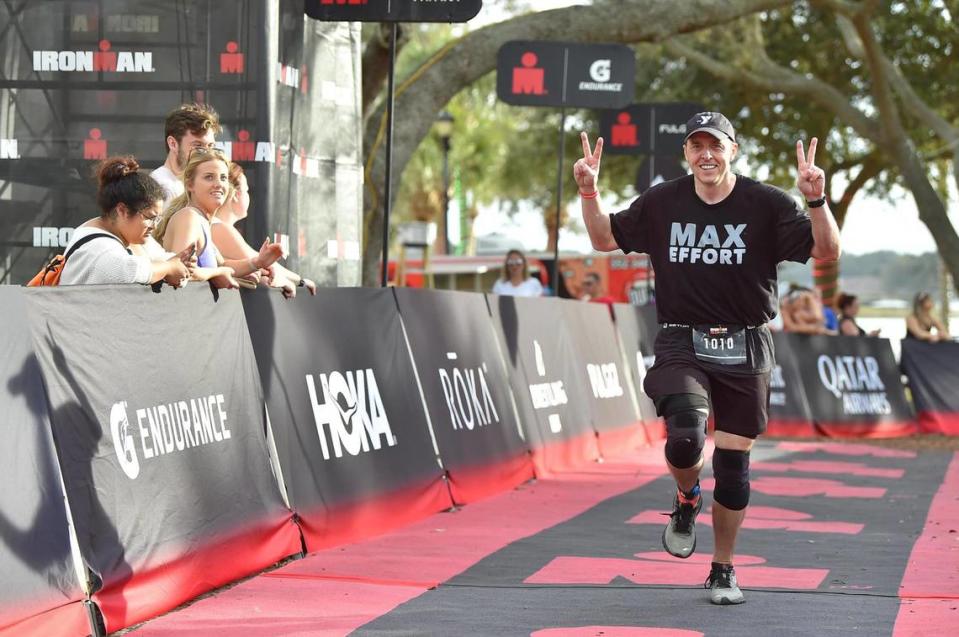
As of today, it’s been almost a year since any of his scans have shown evidence of cancer.
But he knows there’s no real way to guarantee it won’t come back.
‘Your story: Are you a hero in it?’
Max’s boss at the YMCA, Kelly Rogers, refers often to a story Max once told in a senior leadership team meeting — a story in which he recalled a fond memory he has of a Christmas when he found an orange in his stocking, of how lucky he felt to get that orange.
“He could have told the story,” she says, “in a way that was like, ‘Poor, pitiful me.’ Right? ‘We didn’t have much growing up, it was a hard time.’ But he took the opportunity to just talk about what a genuinely exciting, savory moment that was, and how that really embedded in his mind, what a rare thing it was. ... He never really knew that he was poor. He was a happy kid. It was this orange story that just came back to haunt me, in the best of ways, to say, How do I look back on the moments in my life contextually?
“Like, it’s within my power to look back at the crappy moments in my life,” Rogers continues, “and say, Hey, those weren’t all bad. There were some oranges in there.”
And what’s remarkable about this is that he may someday talk about having cancer the same way he talked about that orange.
That is, others may view his disease as pitiable, him as someone to feel sorry for. He sees it as a “roller coaster of mind and body challenges” that inspired him to become even healthier than he was before, mentally and physically. His experience, he says, has in turn inspired his family, some of his friends and some of his colleagues to shift their lifestyles in a more healthful direction.
“In some strange way,” Max says, “this is one of the best years of my life. ... I don’t know if I would take it back.”
Even if cancer ultimately does take his life prematurely, he believes he’s modeled behaviors and mindsets that can help others facing terminal diagnoses — or, at the very least, has prompted more than a few people to get colonoscopies they wouldn’t have otherwise.
“I’m definitely not in denial,” he says. “The fight, it’s not over. We don’t have technology right now, or medical resources, to tell me that I’m good. Those words ‘you beat cancer’ — well, as far as the data says, there is no such thing. In reality I can’t say, I beat it. It can come back any minute. But I think I’ve had enough time to make peace with the fact that, yeah, if this is it, then I’m good.”
“I always like that concept ‘the hero of your own story.’ If your family, your children, your friends, if they look at your story, are you a hero in it?,” he continues, as he sits in his living room, in a Ballantyne house he could only have dreamed of living in when he first arrived in the U.S., its walls decorated with family photos not dissimilar to the ones he used to envy while he was cleaning offices.
“I feel that this gave me an opportunity to — if I do die, (if this is the) last chapter— I can be pretty satisfied with it. I didn’t plan it, I didn’t have a blueprint for it, I didn’t know how to respond to the situation, but now that I’m in it, you know, that’s not a bad chapter. And on the top of that, if that helps everyone else, then —”
He pauses for a few seconds, before finishing the thought: “— if I’m gonna go, that’s how I want to go.”
In the meantime, though, please excuse him while he gets ready for another race: a return to the White Lake Half Triathlon, two Saturdays from now...
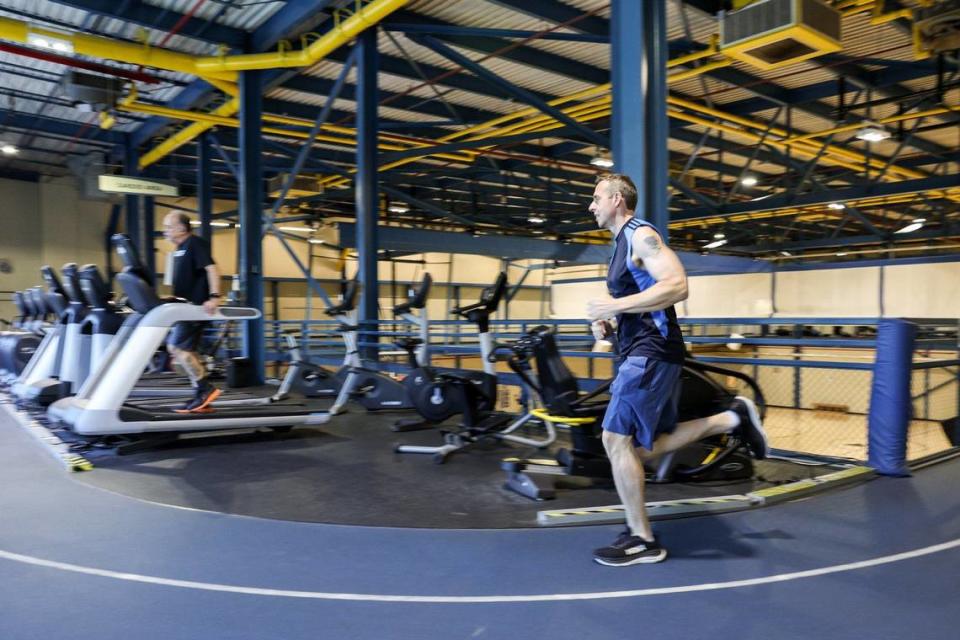
Kelly Rogers, vice president of operations and board development for the YMCA of Greater Charlotte, is organizing a fundraising effort to help Max Savar and his family with expenses related to his cancer treatment and his overall health and wellness. Details: https://gofund.me/08339cab.

